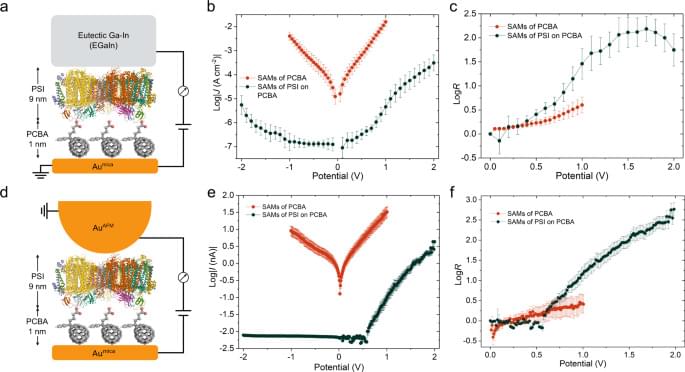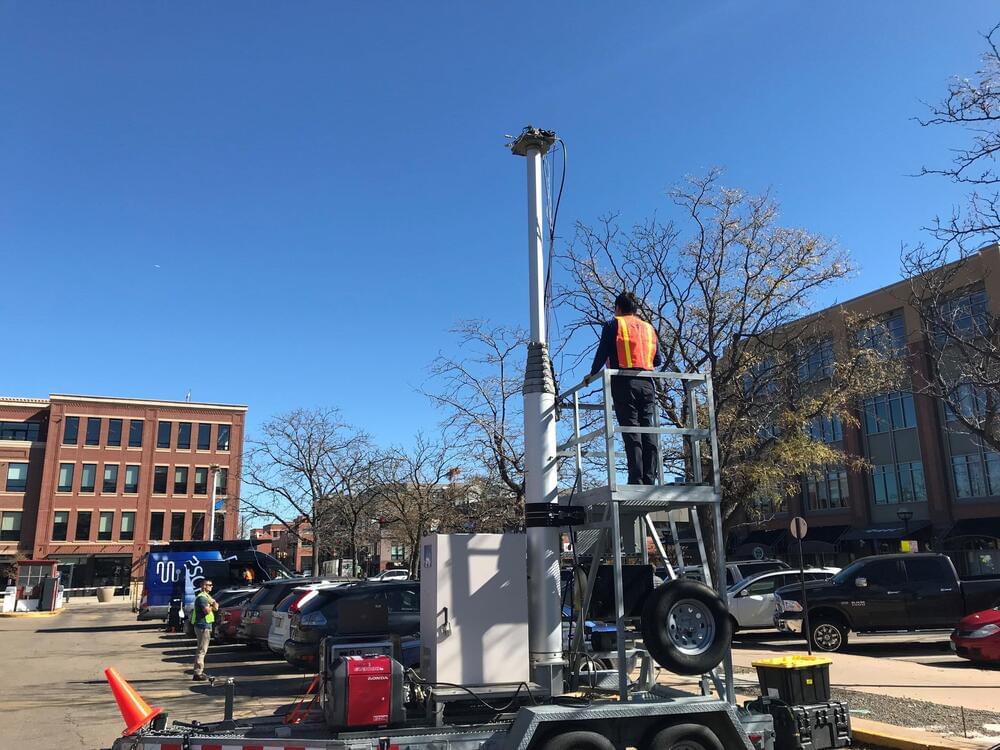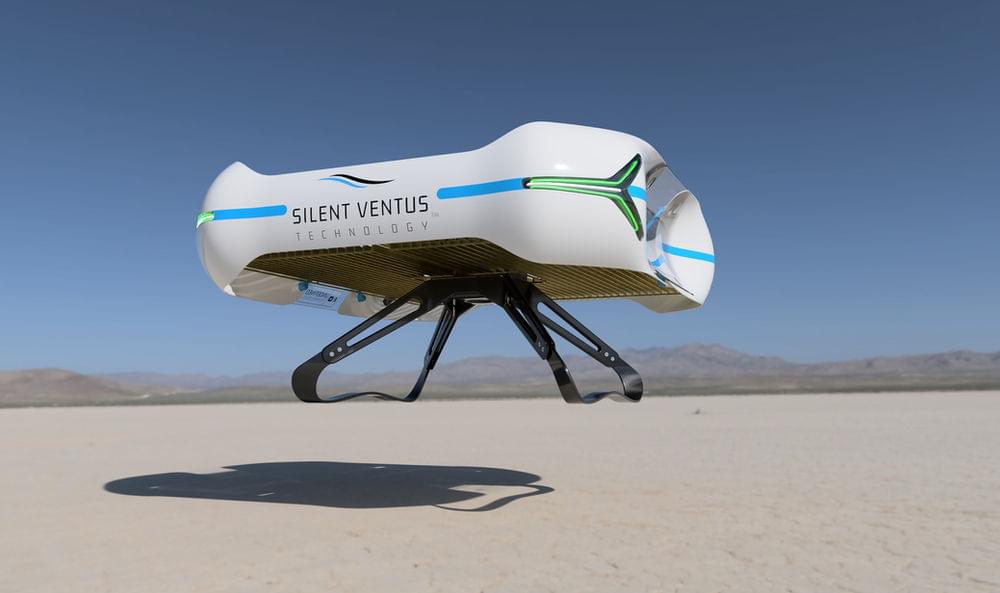If there’s one hard-to-ignore annoyance with drones is noise pollution, with these otherwise extremely useful aircraft being quite loud due to their propellers. This Florida-based startup plans to solve that problem and help create a quieter urban environment with its next-generation silent drone.
Get the latest international news and world events from around the world.

Cutting the carbon footprint of supercomputing in scientific research
Simon Portegies Zwart, an astrophysicist at Leiden University in the Netherlands, says more efficient coding is vital for making computing greener. While for mathematician and physicist Loïc Lannelongue, the first step is for computer modellers to become more aware of their environmental impacts, which vary significantly depending on the energy mix of the country hosting the supercomputer. Lannelongue, who is based at the University of Cambridge, UK, has developed Green Algorithms, an online tool that enables researchers to estimate the carbon footprint of their computing projects.


Pentagon finds hundreds of cyber vulnerabilities among contractors
“[The program] has long since recognized the benefits of utilizing crowdsourced ethical hackers to add defense-in-depth protection to the DoD Information Networks,” Melissa Vice, interim director of the vulnerability disclosure program, said in a statement.
Vice added that the pilot was intended to identify whether similar critical and high-severity vulnerabilities existed for small-to-medium-cleared and non-cleared defense-industrial base companies with potential risks for critical infrastructure and the U.S. supply chain.
Which contractors were involved was not disclosed. The campaign launched in April 2021 with 14 participating companies and 141 publicly accessible assets to examine. Interest quickly ballooned; 41 companies and nearly 350 assets were eventually admitted. The results were announced May 2.

Religion must not trample on children’s rights, says Ofsted head
The chief inspector of schools in England has told parliament that children’s rights should take priority over religious concerns and schoolgirls should be free from pressure to wear hijabs.
The National Secular Society has welcomed the remarks from Ofsted chief inspector Amanda Spielman, which came in an appearance before the Commons public accounts committee on Wednesday.
Spielman defended a recent assertion that schools should enforce “muscular liberalism” and said religion should not “get priority over all the other protected characteristics”, referring to anti-discrimination protections in equalities legislation.

Wi-Fi may be coming soon to a lamppost near you
As Wi-Fi is deployed more widely in cities, and perhaps at higher frequencies, it may depend on an abundant urban asset: streetlight poles.
To help ensure these networks work well, researchers at the National Institute of Standards and Technology (NIST) have developed and verified a novel model that will help wireless communications providers analyze how high to attach Wi-Fi equipment to light poles.
In general, the NIST team found that the optimal height depends on transmission frequency and antenna design. Attaching equipment at lower heights of around 4 meters is better for traditional wireless systems with omnidirectional antennas, whereas higher locations 6 or 9 meters up are better for the latest systems such as 5G using higher, millimeter-wave frequencies and narrow-beam antennas.
Millions of Monarchs Swarm Fake Hummingbird As It Captures Spectacular Footage of Their Flight
With its clementine-colored wings bordered with black lines and white spots, the monarch, also known as Danaus Plexippus, is a widely recognizable insect. As the weather changes and gets cooler, the monarchs migrate from their breeding grounds in Canada and the northern United States and fly to central Mexico, where they form clustered colonies on oyamel fir trees to conserve heat until the days grow longer and they migrate north once again.
In this spectacular clip filmed by the PBS series Spy in the Wild, a mechanical “spy hummingbird” flies over a swarm of resting monarchs. Creators chose the flying creature because it feeds on nectar and thus isn’t seen as a threat. As the sun warms the butterflies’ wings to 50 degrees, the insects wake and start to flutter and move. The hummingbird spy finds itself within the very heart of the swarm and captures a spectacular scene in which millions of butterflies take to the sky once more in a mesmerizing confetti-like cloud. (via Laughing Squid)
Boston Dynamics’ Robot Dog Spot Now Sees the World in Color, Has 5G and Uses a Fancy New Controller
The world’s most advanced four-legged robot finally sees in color.

What The Next-Generation Silent Drone Looks Like
Drones with ion drive. now if could rig it up with indefinite batteries and solar power skin and a tesla wave receiver system.
Undefined Technologies has revealed the new design of its ion drone MIAMI, APRIL 18, 2022 – Undefined Technologies, a Florida-based tech startup, has unveiled the new aesthetic design of its silent eVTOL drone powered by ion propulsion. The concept vehicle named “Silent Ventus™” uses proprietary technology to fully use the ion cloud surrounding the craft to generate high levels of ion thrust in atmospheric air. “Silent Ventus™ is a vivid example of our intent of creating a sustainable, progressive, and less-noisy urban environment,” says Tomas Pribanic, Founder and CEO of Undefined Technologies. “The design brings us closer to our final product and enables us to showcase the dual-use of our technology.”
Doing More with Spot
Over the last couple of years, we’ve continued to make improvements to Spot to better enable our customers. Today we’re adding to the list! https://bit.ly/3y68Ow1
Finally, Spot’s charger is now smarter and faster, bringing Spot’s newest battery models to full capacity in an hour or less. Users can refer to the OLED display for real-time information on battery charge and can continue to charge the robot directly or hot-swap batteries for continuous operation.
Expanded Payload Ecosystem
The robot itself is just one piece of the puzzle. The full Spot solution includes the community, customization options, and collaboration ecosystem that helps deliver the most value from the robot. Through Boston Dynamics and our partners, customers can outfit Spot with a variety of payloads, including additional cameras, sensors, laser scanners, and more. These payloads, paired with specialized software, enable Spot to collect and process the data that gives industrial teams valuable insights into what’s happening in their facilities. This ecosystem is constantly evolving, and today we are excited to announce two new pieces of hardware that will enable next-level computation, radio communications, and 5G connectivity.